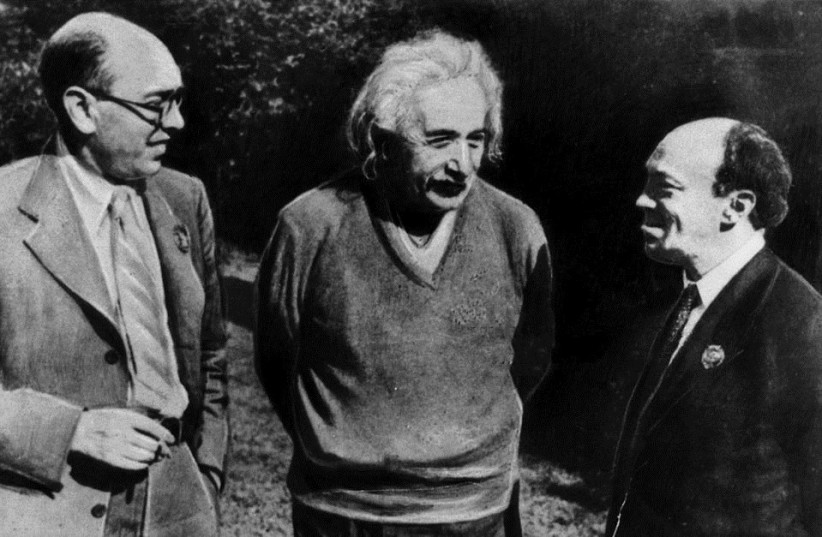Revealed in a letter: Albert Einstein’s secret plan to save Jewish professor from Nazi Germany
In a recently unveiled letter, the famed Jewish physicist Albert Einstein demonstrated his unwavering commitment to compassion and intellectual freedom during a dark period in history, according to the Jewish Chronicle.
Dated October 1933, the letter reveals Einstein’s desperate appeal to Scottish philosopher Sir William David Ross to aid in the rescue of Professor Julius Stenzel, a Jewish German philosopher targeted by Nazis.
At the time, Stenzel found himself entangled in the volatile political climate of Nazi Germany.
Initially employed at the Christian Albrechts University of Kiel, he played a role in expelling several Nazi students from the institution in 1930.
This courageous act, however, led to his denunciation by a student and a subsequent temporary leave of absence.

Stenzel fell victim to the Professional Civil Service Act, a law designed by the Nazis to purge Jews from public service. He was subsequently transferred to the University of Halle, a common punishment for scholars facing political repercussions during the Nazi era.
Einstein, who had fled Germany after Adolf Hitler’s rise to power and was residing in Norfolk in the UK at the time, penned a heartfelt letter to philosopher Ross.
What did Albert Einstein write in the letter?
In the letter, Einstein implored Ross to assist him in bringing Stenzel to the safety of the UK, where Stenzel could serve as a guest lecturer.
Einstein expressed deep concern for Stenzel’s well-being and highlighted his significant contributions to the field of ancient Greek science history.
Einstein’s letter read: “Professor Zangger at the University of Zurich asked me to make you aware of Professor Stenzel in Kiel, who lost his position. He researches the history of science in ancient Greece. The question is if there is a possibility to invite this gentleman to England or America as a guest lecturer.”
Despite Einstein’s impassioned plea, Stenzel never managed to escape Nazi Germany.
Tragically, he passed away in 1935 while still in Halle. However, his Jewish wife successfully emigrated to the United States in 1939, where she settled in California with their son Joachim.
The letter, written in German by Einstein, is set to be auctioned alongside a collection of letters sent to Ross by eminent figures such as Winston Churchill, and Charles De Gaulle. This invaluable historical artifact is expected to sell for £6,000 at the auction.
The collection, donated to Oxfam by the family of Sir William’s daughter, Katherine Ross, will contribute to the organization’s mission to combat poverty worldwide.
“We are so grateful for the support of Katharine Ross throughout her life and for her family gifting us such a treasured and important letter,” Oxfam Valuer Shelley Hitch said. “The money raised will help Oxfam and our partners continue to fight the injustice of poverty around the world. We always ensure Oxfam gets the best possible price for every donation.”





Comments are closed.